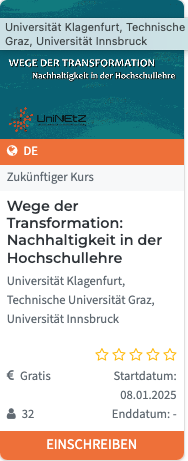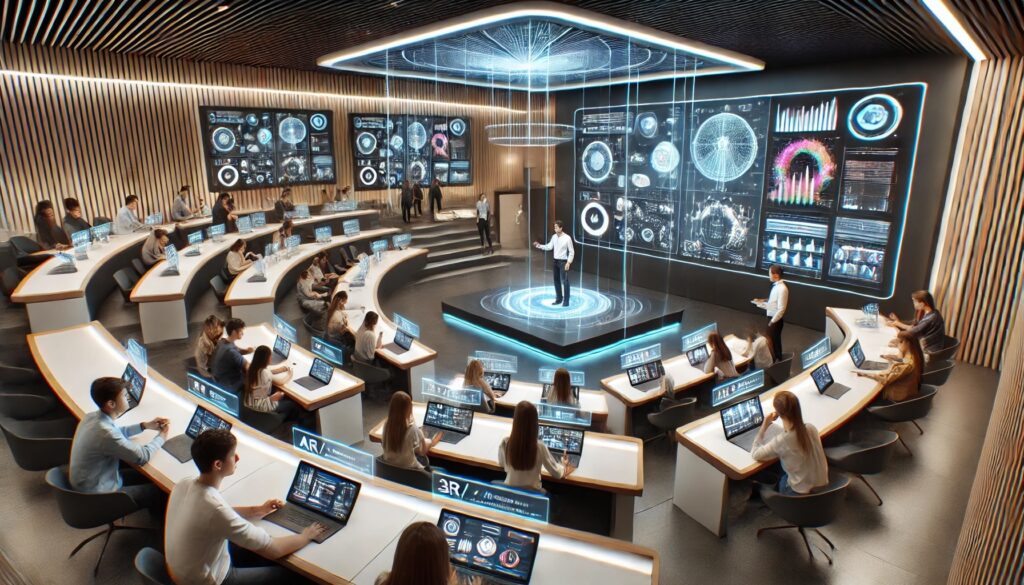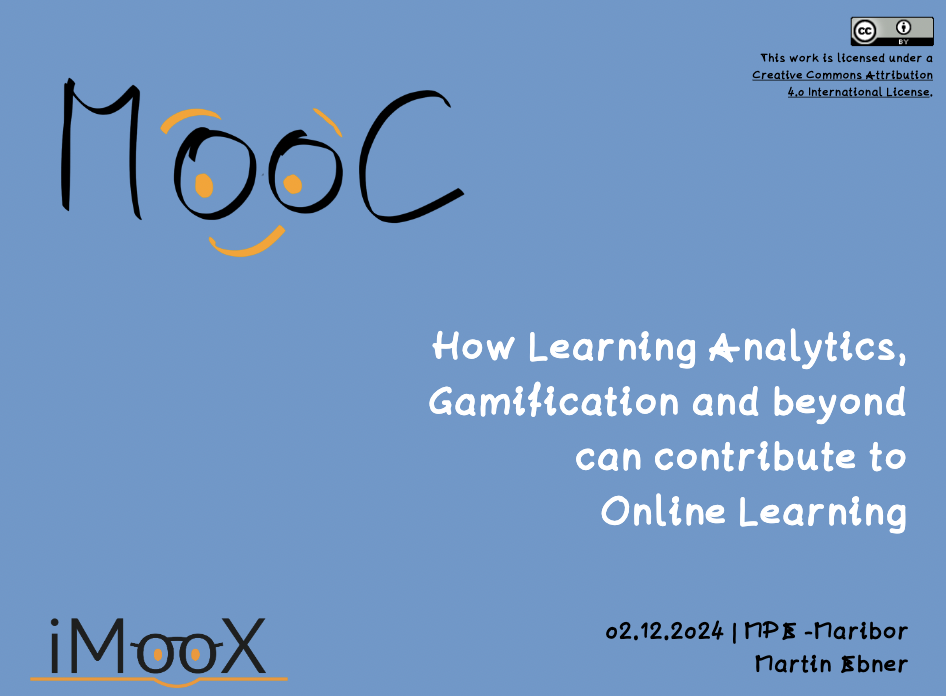Our research on OER, MOOCs, and Microcredentials was published in the book „Advanced Technologies and the University of the Future: Lecture Notes in Networks and Systems“.
Abstract:
This paper presents the situation concerning open and digital learning and teaching opportunities with respect to three developments: Open Educational Resources (OER), Massive Open Online Courses (MOOCs), and the introduction of microcredentials. Firstly, the paper introduces these concepts. Then, before the background of the Austrian university landscape, the authors describe how these three measures are currently or will be implemented at Graz University of Technology (TU Graz). TU Graz is one of the first universities worldwide with an OER policy document and is as well host of the Austrian MOOC platform iMooX.at. Both provide the opportunity for new collaborations amongst universities and opportunities for learners. The introduction of microcredentials is just beginning at TU Graz and provides an opportunity for external learners and students to receive accredited confirmation of their qualifications from the university. The article not only discusses the opportunities and positive effects of these developments at TU Graz as part of the digitalization of teaching and lifelong learning activities, but also addresses the challenges in an increasingly globalized and competitive higher education landscape.
[article @ publisher’s homepage]
[draft @ ResearchGate]
Reference: Ebner, M., Kreuzer, E., Schön, S., Edelsbrunner, S. (2025). Opening Up Teaching and Learning at Universities: OER, MOOCs and Microcredentials. In: Vendrell Vidal, E., Cukierman, U.R., Auer, M.E. (eds) Advanced Technologies and the University of the Future. Lecture Notes in Networks and Systems, vol 1140. Springer, Cham. https://doi.org/10.1007/978-3-031-71530-3_18









